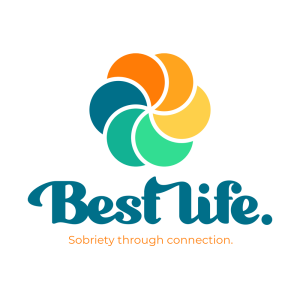Sober living communities are a critical component of the recovery process for individuals seeking to overcome addiction. Here, we draw parallels, with the Best Life long-term sober living mHealth App, where app users can benefit from a unique and collaborative approach to sobriety that is specifically designed to meet the challenges of long-term recovery. The Best Life app provides a safe, structured, and supportive environment where people can develop the skills and habits necessary to maintain sobriety and rebuild their lives through building healthy connections.
By incorporating real-time sobriety tracking, access to support services, community building, and accountability features, the app offers a holistic approach to recovery that has proven effective in achieving sustained sobriety in alternate settings such as sober living communities. With regular updates and reminders, members can stay engaged and motivated in their recovery journey.
In this blog post, we will explore some of the key factors that contribute to the success of long-term sober living communities and discuss why the Best Life App is an appealing option for those seeking to achieve and maintain lasting recovery. Whether you are looking to join or start a sober living community, or seeking to deepen your understanding of how to support individuals in their recovery journey, this blog post will provide valuable insights and best practices to help you build a thriving and supportive environment for long-term recovery.
Influencing factors:
The success of a long-term sober living community is influenced by a variety of factors. One of the most important is the presence of a supportive and empowering community, where residents can form positive relationships with others who are committed to sobriety. This can help residents to feel connected and valued, and to build the social networks that are essential for long-term recovery.
Effective management and leadership is also crucial, as residents need clear rules and expectations to help them stay on track, as well as guidance and support when they encounter challenges.
The provision of comprehensive support services, such as therapy, education, and job training, can help residents address the underlying issues that led to their addiction and equip them with the skills and resources they need to rebuild their lives. A strong focus on accountability through regular community meetings and other forms of monitoring, can also help to create a culture of responsibility and discourage relapse. Ultimately, the key to success in long-term sober living is the creation of an environment that supports and encourages recovery, and helps residents develop the habits and practices that will sustain their sobriety over the long term.
Maintaining sobriety in group living requires a combination of individual effort and community support. One of the best practices for achieving and maintaining sobriety in group living is to establish clear rules and expectations for residents, such as abstaining from drugs and alcohol, participating in community meetings, and completing assigned chores. Regular drug testing and other forms of accountability can also help residents stay on track and discourage relapse.

Community building:
Building a strong sense of community and accountability is essential for the success of any sober living environment. It is the foundation upon which people can form positive relationships and support each other on their journeys towards sustained recovery. A strong sense of community is fostered by creating opportunities for residents to connect with each other, such as through group meals, recreational activities, and community meetings. In these settings, members can share their experiences, offer encouragement and support, and develop a sense of belonging to a larger group of peers who share their commitment to sobriety.
When a strong sense of community and accountability are combined, they create an environment that supports and encourages lasting recovery. By fostering a sense of belonging, providing opportunities for growth and self-expression, and promoting responsible behaviour, sober living communities can help residents build the skills and habits necessary to achieve lasting sobriety and build healthy, fulfilling lives in recovery.
Going digital:
So, in many ways, the Best Life Sobriety Community mobile app is the ideal tool for creating and maintaining a strong sense of community in a completely digital sober living environment. By bringing people with a substance use disorder, affected people, sober curious people, and community leaders together in a shared virtual space, this app makes it easy to build community, share experiences, and support one another. With features like real-time sobriety tracking, progress tracking, community meetings, and sober meetups, this app helps people stay on track and focused on their recovery goals.
The app also aims to provide access to comprehensive support services, such as therapy, recovery education, and lifestyle opportunities, which can help people struggling with addiction address the underlying issues that led to their situations and build the skills and resources they need to rebuild their lives. With regular updates and reminders, this app aims to assist community members to stay engaged and motivated in their recovery journey, and provides valuable insights and feedback that can help bolster the online support network and help your personal community better understand and respond to your needs.
Ultimately, the Best Life app can be a key part of creating and sustaining a thriving, supportive, and empowering environment in an easy-to-access online sober living community that then connects members in real life through geo-location. By combining the best practices of community building and support services, this app aims to provide everyone with the tools and resources they need to achieve lasting sobriety and build healthy, fulfilling lives in sobriety.


2 Responses
Fabulous App…thank you.
We hope to see you here often! Thank you for the compliment!